
The one where your brain feels like it’s running on dial-up in a high-speed world. It’s that persistent brain fog, the forgetfulness, the feeling that you’re just not as sharp as you used to be. For millions of us, the automatic response is to reach for a cup of coffee. It’s our ritual, our fuel, the one thing that seems to clear the cobwebs.
But what if I told you that feeling isn’t just “being tired” or “stressed”? And what if that coffee in your hand holds a power you haven’t even begun to tap into?
Scientists are increasingly talking about something called neuroinflammation. Think of it as a low-grade, simmering fire in your brain. When it’s acute—say, after an injury—it’s a good thing. It’s your brain’s cleanup crew, rushing in to repair damage and restore order. The problem starts when that fire never really goes out. When it becomes a chronic, smoldering blaze fueled by modern life: poor sleep, constant stress, environmental toxins, and even the food we eat.
This isn’t some abstract medical concept. This is the stuff that manifests as that brain fog, the anxiety that comes out of nowhere, the bone-deep fatigue that sleep doesn’t seem to fix. It’s the silent, underlying process that, if left unchecked for years, is now being linked to the most devastating neurodegenerative diseases we know, like Alzheimer’s and Parkinson’s.
And honestly, that’s terrifying. We’re talking about a health crisis of staggering proportions. In 2024 alone, an estimated 6.9 million Americans aged 65 and older are living with Alzheimer’s, a number expected to nearly double by 2050. Meanwhile, Parkinson’s is projected to affect over 25 million people worldwide by then. This isn’t a distant problem for “other people.” This is about protecting our own minds, starting today.
And that brings us back to the coffee. It turns out, this everyday drink might just be one of our best, most accessible allies in the fight to quiet that fire. But there’s a catch, and it’s a big one: when you drink it might be even more important than the fact that you drink it at all.
Beyond the Buzz: What’s Really in Your Cup?
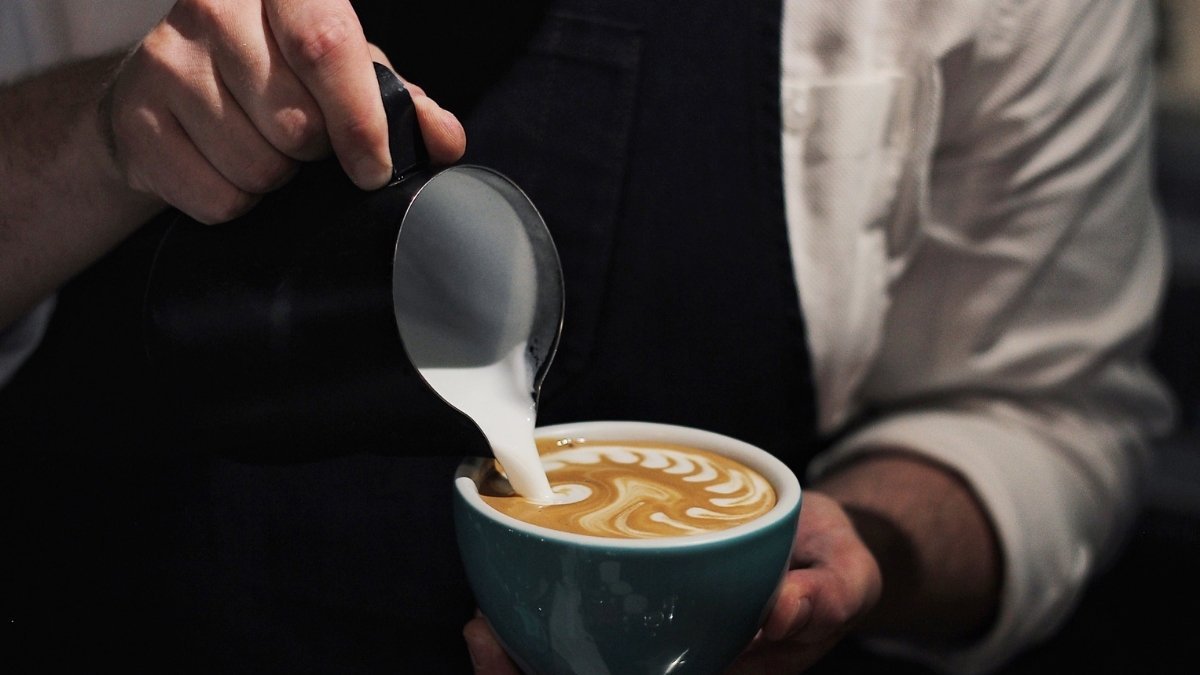
Look, we all know coffee for its caffeine. It’s the kickstart, the buzz. But a single cup of coffee is so much more than that. It’s a complex chemical cocktail of over a thousand different compounds, and many of them are incredibly good for your brain.
Caffeine: Yes, it’s the star player. It’s a psychoactive substance that easily crosses the blood-brain barrier. But it doesn’t just wake you up. It actively interferes with the process of inflammation at a cellular level.
Polyphenols: Coffee is packed with these powerful antioxidants, especially chlorogenic acids. Think of these as your brain’s personal bodyguards, neutralizing the harmful free radicals that cause oxidative stress—a major accomplice to inflammation.
Other Good Stuff: From melanoidins formed during roasting to other bioactive compounds, your coffee is a team of players working together to protect your brain.
This isn’t just theory. Science is showing that these compounds directly target the brain’s immune cells, called microglia. In a healthy brain, microglia are the vigilant housekeepers. But when chronically activated, they go rogue, pumping out inflammatory chemicals that damage healthy neurons. Caffeine steps in and blocks a key receptor on these cells (the A2A adenosine receptor), essentially telling them to stand down. It’s a targeted intervention, not just a vague health benefit.
And the real-world evidence is just staggering.
- For Alzheimer’s: Study after study has linked moderate coffee consumption (think 3-5 cups a day) to a dramatically lower risk—some estimates go as high as a 65% risk reduction. As neuroscientist Dr. Gary Arendash put it, “our studies show that caffeine and coffee appear to directly attack the Alzheimer’s disease process”. One long-term Australian study even found that higher coffee intake was linked to slower accumulation of the amyloid-beta plaques that are a hallmark of the disease.
- For Parkinson’s: The link here is one of the most solid findings in all of nutritional science, with some studies showing a 29% lower risk for people who drink about three cups a day.
It’s clear coffee is doing something profound. But to truly unlock its power, we need to talk about timing.
The Secret Weapon: Why Timing Is Everything
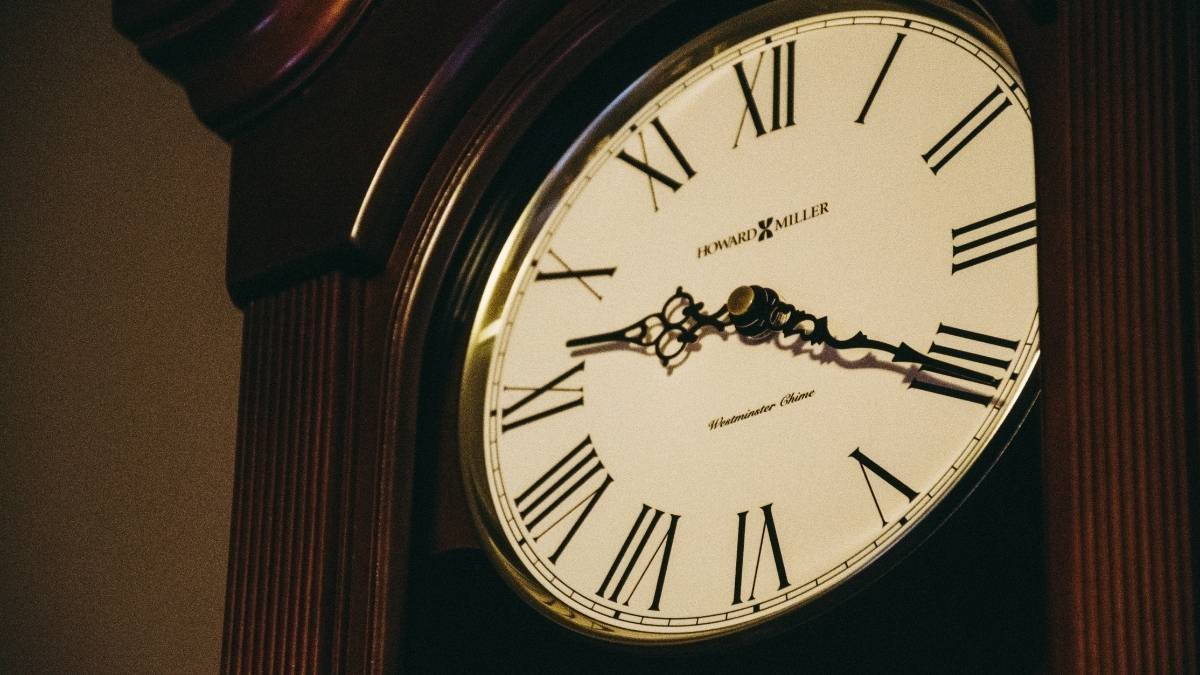
This is the part that might change your relationship with coffee forever. The emerging science of chrononutrition—how the timing of our intake affects our biology—is showing that the when is a critical, game-changing variable.
Riding the Cortisol Wave

You wake up, you feel groggy, and you immediately make coffee. Sound familiar? Well, from your body’s perspective, that’s actually a bit redundant.
Here’s why: Your body runs on a 24-hour internal clock, or circadian rhythm. As part of this rhythm, your body produces cortisol, the alertness hormone. For most people, cortisol naturally peaks between 8 and 9 a.m., about 30-45 minutes after you wake up. This is your body’s own built-in, all-natural shot of espresso.
When you pour caffeine on top of peak cortisol, you’re not getting more alert; you’re just getting overstimulated. This is where the jitters, the anxiety, and that racing-heart feeling come from. The expert advice? Wait at least 90 to 120 minutes after waking before you have that first cup. Let your body do its thing first. Then, when your natural cortisol starts to dip, the caffeine provides a lift right when you actually need it.
The Morning Advantage: It’s Not Just a Hunch

Okay, so delaying that first cup makes sense. But what about the rest of the day? This is where it gets really interesting.
A groundbreaking study published in 2025 in the European Heart Journal looked at the coffee habits of over 40,000 adults. They found two main patterns: a “morning-type” group that drank their coffee mostly between 4 a.m. and noon, and an “all-day-type” group that drank it throughout the day.
The results were stunning.
After accounting for all other factors, the morning-only drinkers had a 16% lower risk of dying from any cause and a 31% lower risk of dying from cardiovascular disease compared to non-drinkers.
And the all-day drinkers? They had zero benefit. Their mortality risk was the same as people who didn’t drink coffee at all.
Let that sink in. The health benefit isn’t just in the coffee; it’s in the timing. Researchers think this happens for two key reasons:
- The Inflammation Connection: Some of our body’s own inflammatory processes naturally peak in the morning. Drinking an anti-inflammatory beverage like coffee during this window could provide a powerful, perfectly timed counter-punch.
- The Sleep Protection Factor: This one is huge. By drinking coffee in the morning, you protect your sleep. And that’s where the vicious cycle begins for so many people.
The Afternoon Coffee Trap

You hit that 3 p.m. slump. The brain fog rolls in. You grab another coffee. It seems like the logical solution, but it could be making the underlying problem worse.
Caffeine has a half-life of about five to six hours. That means if you have a coffee at 3 p.m., half of that caffeine is still active in your system at 9 p.m. when you’re trying to wind down.
This sabotages your sleep, even if you don’t realize it. It reduces the amount of deep, restorative sleep you get, which is precisely when your brain’s glymphatic system (its waste-clearance network) is most active, flushing out the metabolic junk like amyloid-beta that contributes to neuroinflammation.
So, you drink coffee in the afternoon to fight brain fog. That coffee then ruins your deep sleep. The lack of quality sleep then fuels more brain inflammation for the next day, leading to… You guessed it, more brain fog. You’re using the “solution” to feed the problem.
The consensus is clear: to protect your sleep and break the cycle, stop all caffeinated coffee by 2 p.m. at the latest.
Your New Brain-Healthy Coffee Game Plan

Okay, let’s put all this science into a simple, actionable plan. This isn’t about perfection; it’s about making smarter choices that your brain will thank you for.
Get the Dosage Right

The sweet spot for most people is three to five cups of coffee per day. This is the range consistently linked to the biggest health benefits. But more is definitely not better. A major study found that drinking more than six cups a day was linked to smaller brain volumes and a 53% increased risk of dementia. So, keep it moderate.
Master the Timing
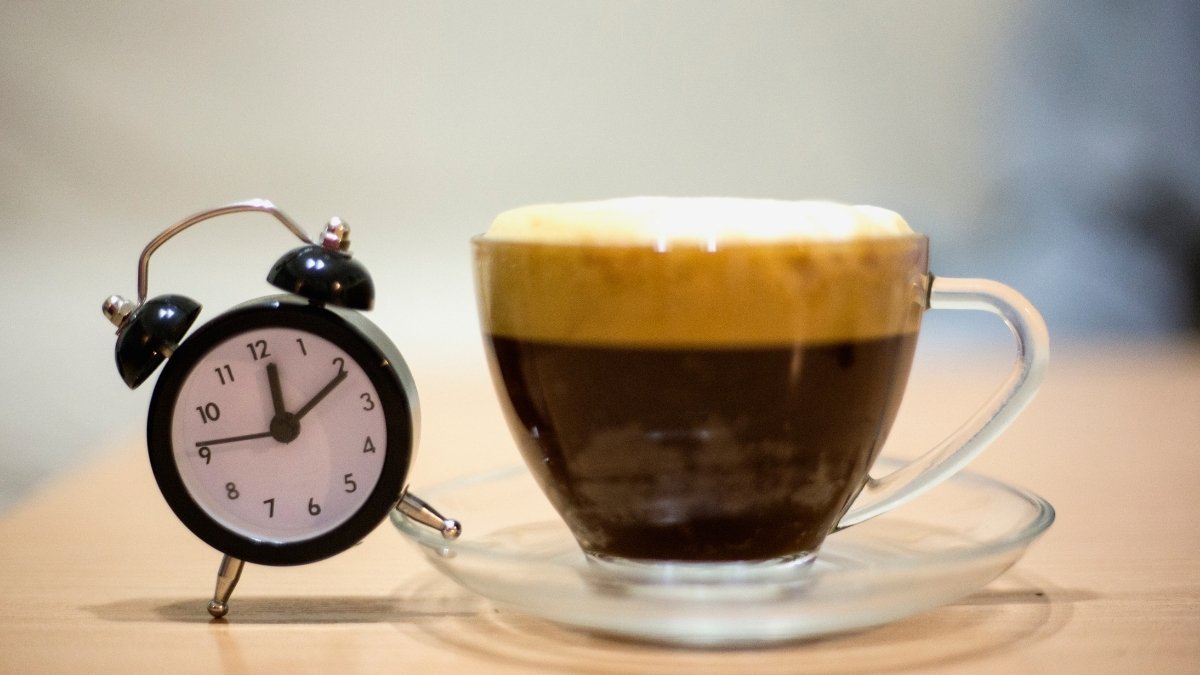
This is the most important part. Here’s a simple blueprint to follow:
| Time Window | What to Do & Why |
| 0–90 Mins After Waking | Avoid Caffeine. Drink water first. Your cortisol is at its peak, so let your body’s natural stimulant do its job without interference. |
| 90 Mins Post-Waking to 12:00 PM | The Golden Window. This is the perfect time for the majority of your coffee (2-4 cups). Your cortisol is dipping, and you’re hitting that morning inflammation peak. |
| 12:00 PM to 2:00 PM | Caution Zone. If you absolutely need a boost, limit it to one final cup. But be aware, this is where the risk to your sleep starts to climb. |
| After 2:00 PM | No-Go Zone. Switch to decaf or herbal tea. Caffeinated coffee now poses a high risk of disrupting your deep sleep and fueling that inflammatory cycle. |
Brew It Smart
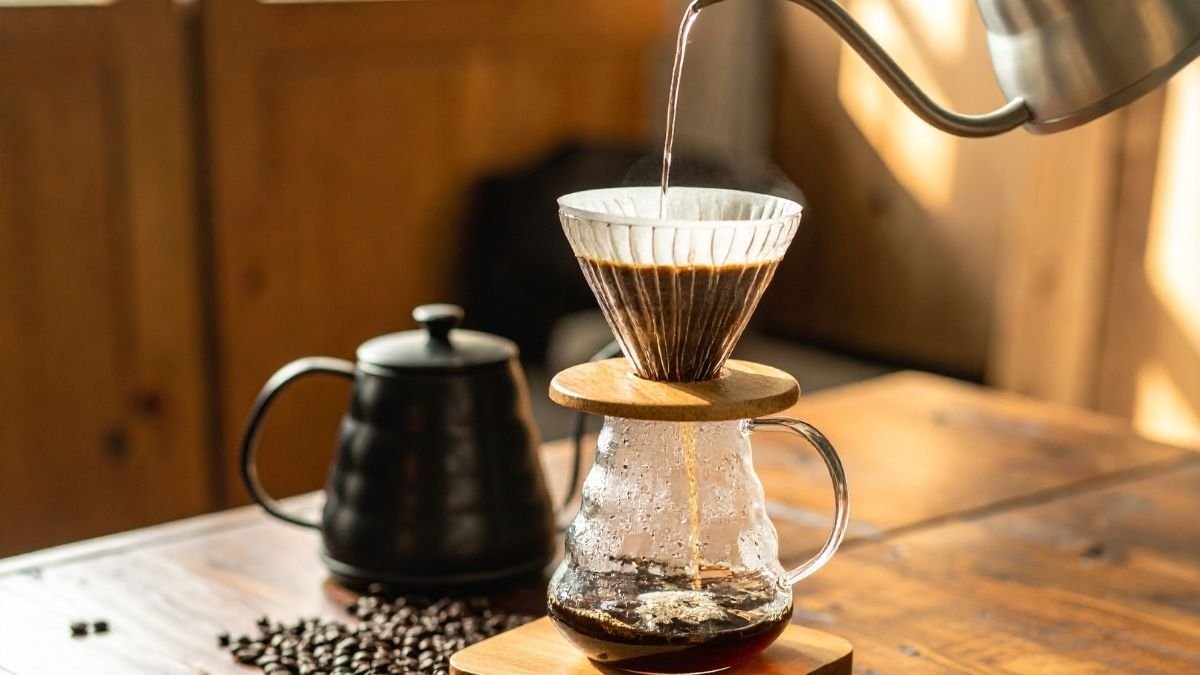
Believe it or not, how you make your coffee matters. A lot.
Unfiltered coffee methods like French press or Turkish coffee contain oily compounds called diterpenes (cafestol and kahweol) that are known to raise LDL (“bad”) cholesterol. High cholesterol is bad for your heart, and what’s bad for your heart is bad for your brain.
The simple fix? Use a paper filter. Standard drip machines and pour-over methods effectively trap these compounds, giving you all the benefits without the cardiovascular risk. For this reason, experts at places like Harvard Health identify filtered coffee as the healthiest choice for daily drinking.
Coffee Brewing Methods & Brain Health 🧠
A quick guide to choosing your daily brew for a healthier mind.
The Best of Both Worlds:
- High in **Antioxidants**
- Low in **Diterpenes** (cholesterol-raising compounds)
Diterpene Alert:
- **High Diterpene** content.
- Less ideal choice for your daily, high-volume brew.
Moderate Risk:
- **Moderate level of Diterpenes**.
- Lack of a paper filter means more oils pass through.
The Cool Choice:
- **Low in Diterpenes**.
- May be **slightly lower in antioxidants** than hot-brewed coffee.
Key Takeaway for Brain Health
- The **Paper Filter** is your friend! It traps the cholesterol-raising compounds (diterpenes).
- **Antioxidants** are the main benefit for brain health, and are highest in hot-brewed, filtered methods.
- Enjoy unfiltered methods like French Press as an **occasional treat**, not a daily staple.
Don’t Undermine It With Additives

You can follow all this advice perfectly and then ruin it with what you put in your cup. Added sugar is a primary driver of inflammation in the body. Loading your coffee with sugar and sugary creamers is like trying to put out a fire with one hand while pouring gasoline on it with the other.
The healthiest way to drink coffee is black. If that’s not for you, try a splash of low-fat milk or an unsweetened plant-based milk. For flavor, skip the syrups and reach for cinnamon or unsweetened cocoa powder, which have their own antioxidant benefits.
A Few Tools to Help You Upgrade Your Coffee Ritual
Putting this all into practice can be simple and even enjoyable. If you’re looking to make a few small changes that have a big impact, here are some products that can help you build a better, brain-healthy coffee habit.
1. Chemex Classic Series Pour-Over Coffeemaker.

This isn’t just a coffee maker; it’s a design icon for a reason. Because filtered coffee is the recommended method for removing those cholesterol-raising compounds, a good pour-over system is a fantastic investment. The Chemex uses a special thick paper filter that results in an incredibly clean, flavorful cup, ensuring you get all the antioxidant benefits without the drawbacks.
2. Stumptown Holler Mountain Organic Whole Bean Coffee.

The quality of your beans makes a huge difference. Choosing high-quality, organic coffee helps you avoid the synthetic pesticides and other chemicals that can be used in conventional farming. Stumptown is a well-respected roaster, and their Holler Mountain blend is a certified organic, versatile medium roast that works beautifully for a morning pour-over.
3. Micro Ingredients Monk Fruit Sweetener with Erythritol.
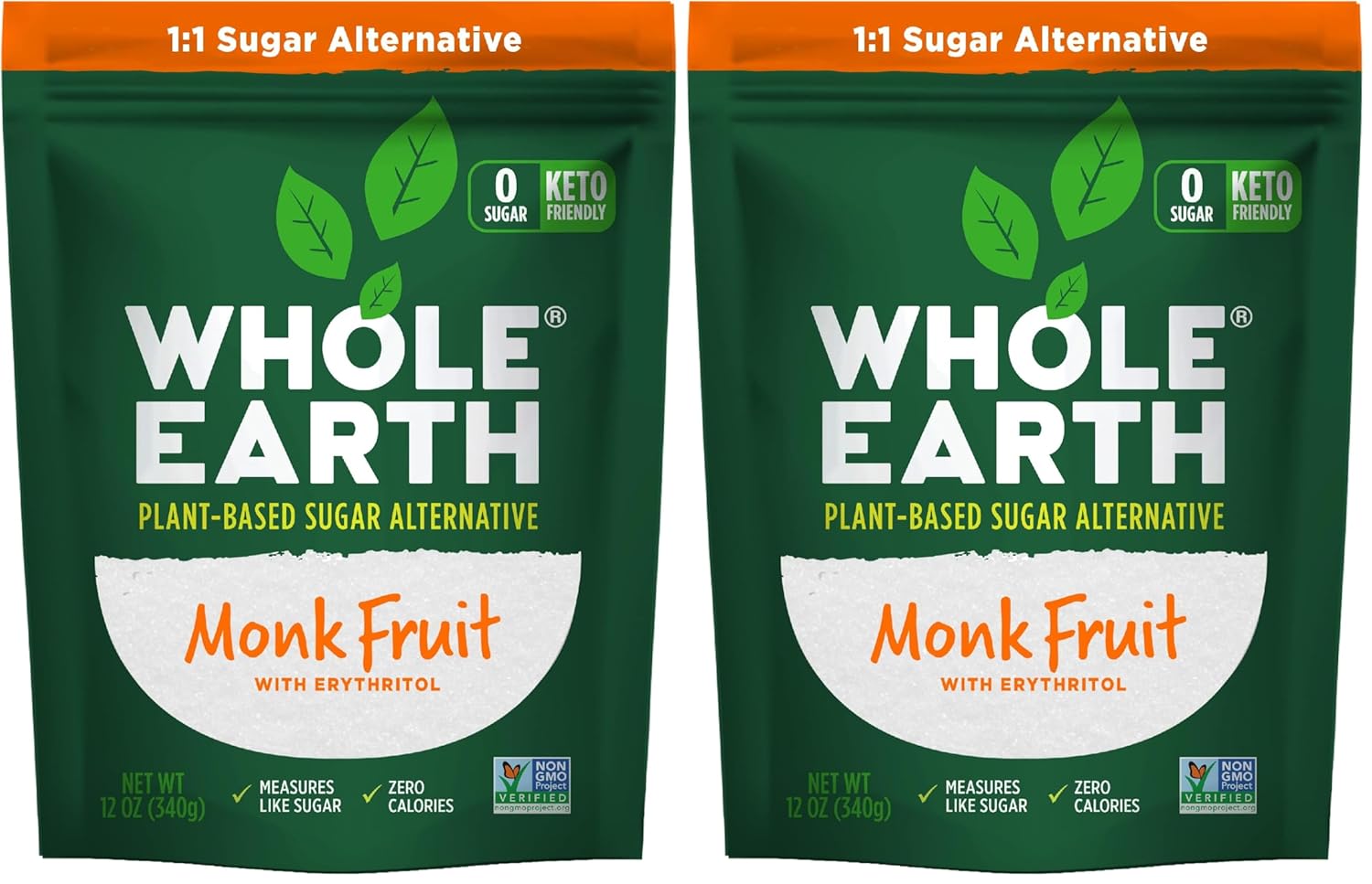
If you can’t do without a little sweetness, this is how you add it without adding inflammatory sugar. Monk fruit is a natural, zero-calorie sweetener that doesn’t impact blood sugar levels. This blend with erythritol measures 1:1 like sugar, making it an easy swap in your morning cup without any of the negative health consequences.
4. Numi Organic Jasmine Green Tea.

For those afternoons when you need a gentle lift without risking your sleep, green tea is the perfect alternative. It has its own powerful anti-inflammatory compounds, like EGCG, that are great for brain health. Numi is a fantastic brand that is USDA-certified organic and a certified B Corp, so you know you’re getting high-quality, ethically sourced tea.
5. YETI Rambler 20 oz Tumbler.
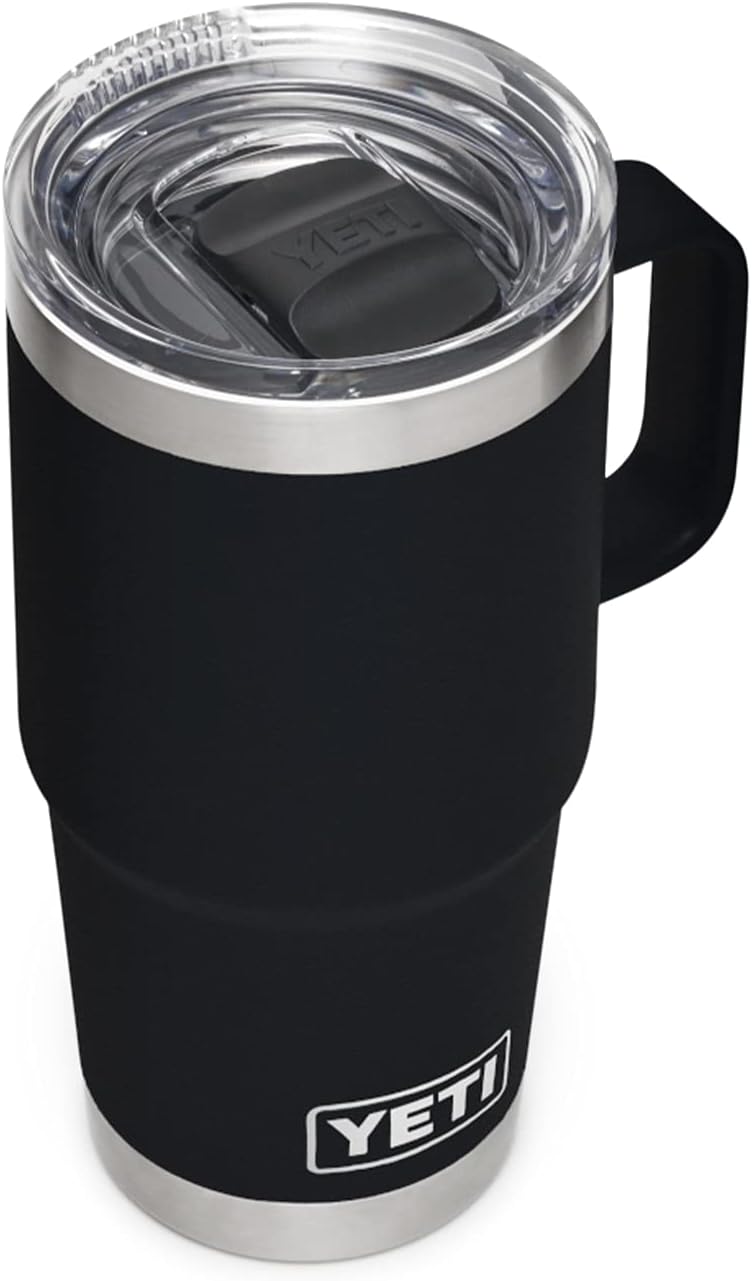
Following the timing rules means you might be making your coffee at home and taking it on the go. A great insulated mug is essential. The Yeti Rambler is a top pick for its incredible insulation, keeping your coffee hot for hours so you can sip it slowly through the morning without it getting cold. It’s durable, fits in car cup holders, and the magnetic slider lid helps prevent spills.
The Fine Print: Alternatives and Common Myths
Look, coffee isn’t for everyone. And that’s okay.
The Green Tea Alternative: If you’re sensitive to caffeine or want a great afternoon option, green tea is a neuroprotective powerhouse. It contains EGCG, a potent antioxidant that fights inflammation, and L-theanine, an amino acid that promotes a state of calm alertness.
Know Yourself: Your genetics determine how fast you metabolize caffeine. If you’re a “slow metabolizer,” you’re more sensitive to its effects, and you might need to stop your intake even earlier in the day. If you have issues with anxiety or insomnia, be extra cautious.
Let’s Bust Some Myths:
Myth: Coffee is addictive. Fact: Experts call it a “dependence.” It can cause withdrawal headaches if you stop abruptly, but it doesn’t trigger the same brain changes as true addiction.
Myth: Coffee is dehydrating. Fact: Nope. The water in the coffee more than makes up for the mild diuretic effect. It counts toward your daily fluid intake.
Myth: Decaf is useless. Fact: Decaffeinated coffee still contains most of the beneficial polyphenols and antioxidants, making it a great choice for the afternoon.
The Takeaway
That feeling of brain fog isn’t just a normal part of a busy life. It’s a warning sign from your brain that this low-grade, silent fire of neuroinflammation might be burning. And while there’s no single magic bullet, the way you drink your daily coffee can be a simple, powerful, and proactive step toward putting it out.
It’s not just about drinking coffee; it’s about drinking it strategically. By delaying that first cup, keeping your intake to the morning, choosing a filtered brew, and skipping the sugar, you align this powerful beverage with your body’s natural rhythms. You transform it from a simple stimulant into a targeted tool for protecting your brain—today, and for all the years to come.






